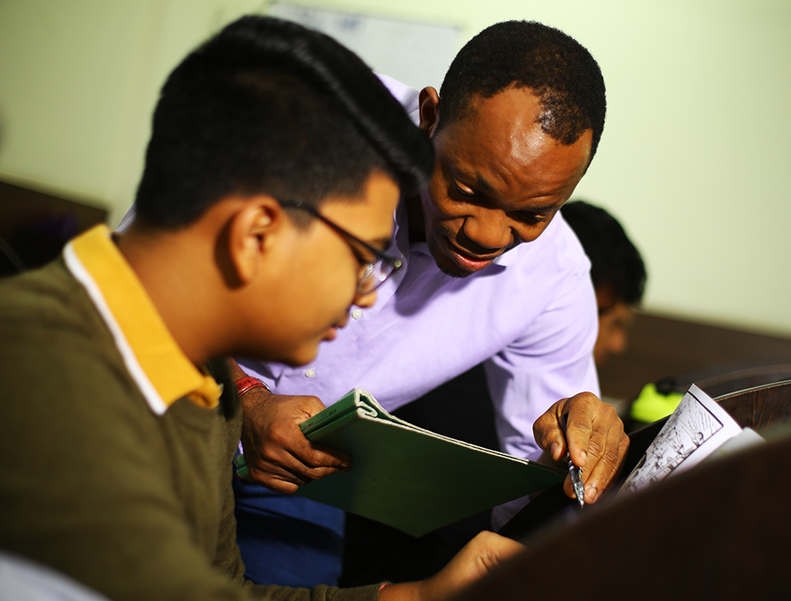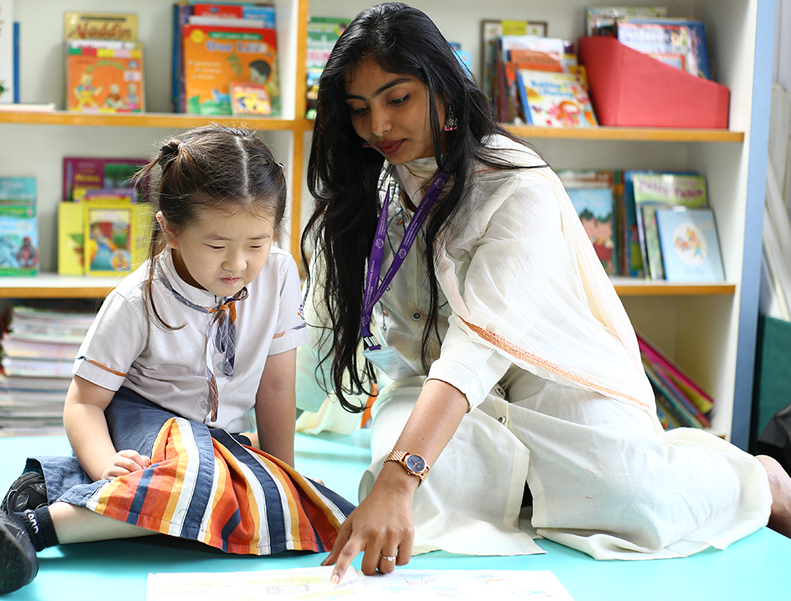Early Years is one of the most important developmental stages in the academic journey of a student. The curriculum choices during this key stage is the first major step in giving a head start to every child. At Oakridge, we developed a unique Pre-Cambridge Primary curriculum for our tiny tots which is based on their uniqueness, sense of belonging, relationships, communication and wellbeing.
Our trained teachers groom the students to become confident, expressive and happy individuals as they enter into primary school. The school offers Cambridge Primary (CP) offered by Cambridge Assessment International Education (CAIE). The CP curriculum is offered in English, Mathematics and Science. Whereas Social Sciences, languages, Music, Art, Drama, Physical Education and Information Communication Technology curriculum is developed keeping the requirements of the country.
All students of Grade 5 appear for a Checkpoint examination in English, Mathematics and Science conducted by Cambridge International. Cambridge Primary enable students to be confident, responsible, reflective, innovative and engaged in their learning before they enter the secondary school. Students joining the secondary school have two choices of curriculum, Central Board of Secondary Education (CBSE) or Cambridge International lower Secondary. Students opting for college studies in India wanting to get good base for national competitive examinations typically choose CBSE curriculum.
Students wanting to keep an option of studying abroad or even the option of taking admissions in India choose the option of Cambridge International. Many students who prefer staying in India and writing competitive examinations also prefer taking Cambridge International till Grade 10, before switching to CBSE Grade 11 and 12. In the past students switching from Cambridge to CBSE after Grade 10 have done exceptionally well in the CBSE Grade 12 examinations.
Students choosing Cambridge International appear for a Checkpoint examination in Grade 8 and International General Certificate of Education (IGCSE) in Grade 10. Both of these exams are conducted by Cambridge International. CBSE students appear for the Grade 10 CBSE examinations (All India Secondary School Examinations, AISSE). Students who are mainly focussed on Indian competitive examinations move on to take CBSE Grade 11 and 12. The CBSE Grade 11 and 12 curriculum is aligned with almost all the competitive examinations syllabi. This offers an advantage to students to prepare simultaneously for the competitive examinations. Grade 12 students appear for CBSE Grade 12 examinations (All India Senior Secondary Certificate Examinations, AISSCE).
Students wanting to continue in the International Curricula move to International Baccalaureate Diploma Programme (IBDP) in Grade 11 and 12. IBDP is one of the most acclaimed school leaving certificates which most universities respect. Students graduating with an IB Diploma stand out in their overall personality becoming better communicators, enhanced social and interpersonal skills, in-depth research skills and most importantly self-management skills. CBSE Grade 12 does not offer second language, whereas IB Diploma offers second language options. Parents are requested to discuss the language progression while seeking admissions to map the language learning throughout the high school years.



